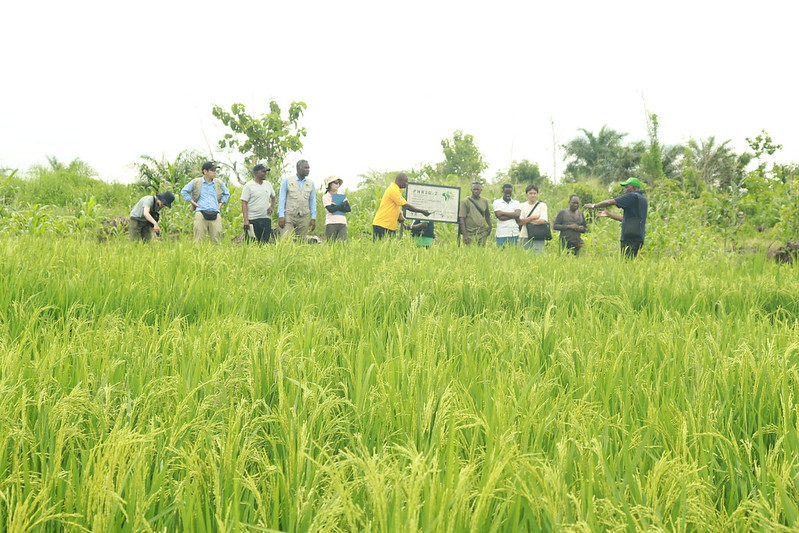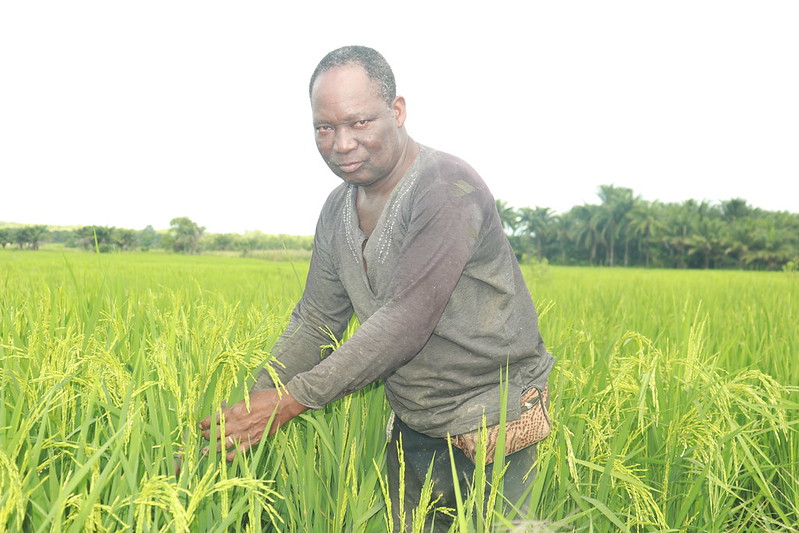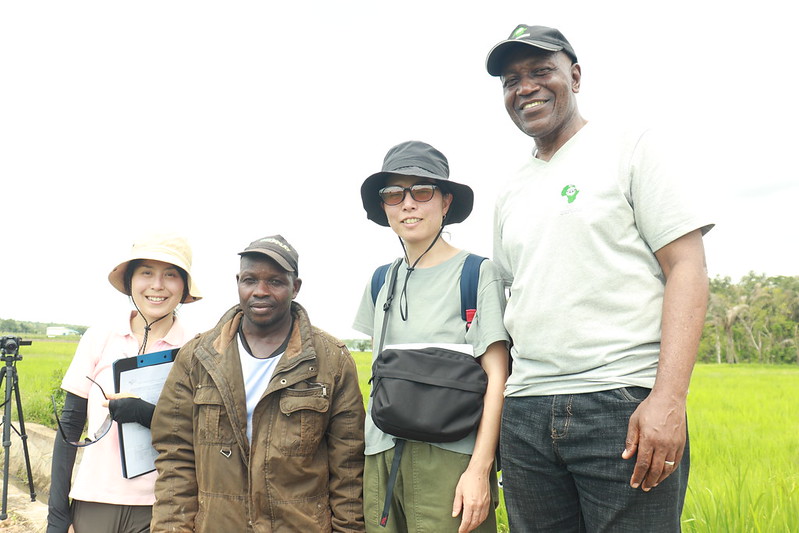
By Ken KOUTCHAKPO
Une délégation du programme Technologies pour la Transformation de l’Agriculture Africaine (TAAT) et ses partenaires s’est rendue à Covè, au Bénin, le 10 juin 2025, pour évaluer l’adoption des innovations agricoles par les riziculteurs.
La visite d’évaluation a été dirigé par Sasakawa Africa Association dans le cadre du projet “Improving rice productivity by decarbonising cultivation for 12,000 hectares of irrigated paddy fields in the Republic of Benin.”, qui consiste à l’amélioration de la productivité rizicole par la décarbonisation des cultures sur 12 000 hectares de rizières irriguées en République du Bénin.
La délégation a observé les changements de pratiques, évalué les impacts sur les rendements et identifié les difficultés rencontrées par les producteurs. Elle a aussi constaté une adoption croissante des nouvelles techniques par les cultivateurs de riz.

Parmi les innovations figurent « l’urée bonbon », les variétés de riz à haut rendement (Orylux 6 et Faro 67), le contrôle de l’humidité et la décarbonisation des sols. Les résultats montrent des rendements supérieurs aux méthodes traditionnelles, encourageant les producteurs voisins à adopter ces pratiques, notamment via le troc de plus de 800 kg de semence du Faro 67.
TAAT et ses partenaires contribuent ainsi à améliorer les rendements et les revenus des riziculteurs béninois, tout en étendant ces solutions à grande échelle.












